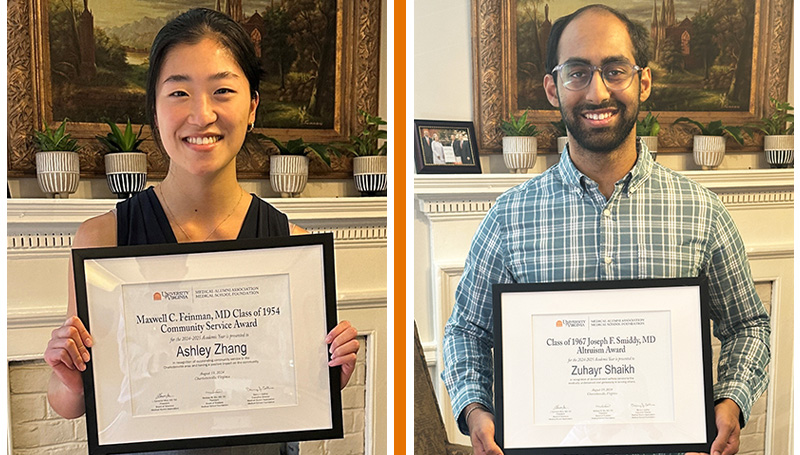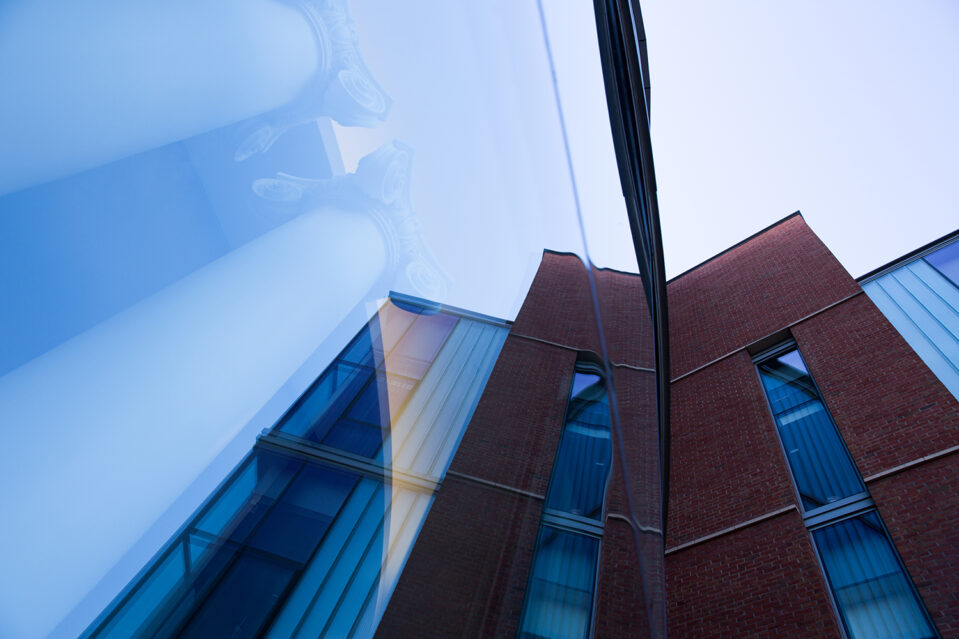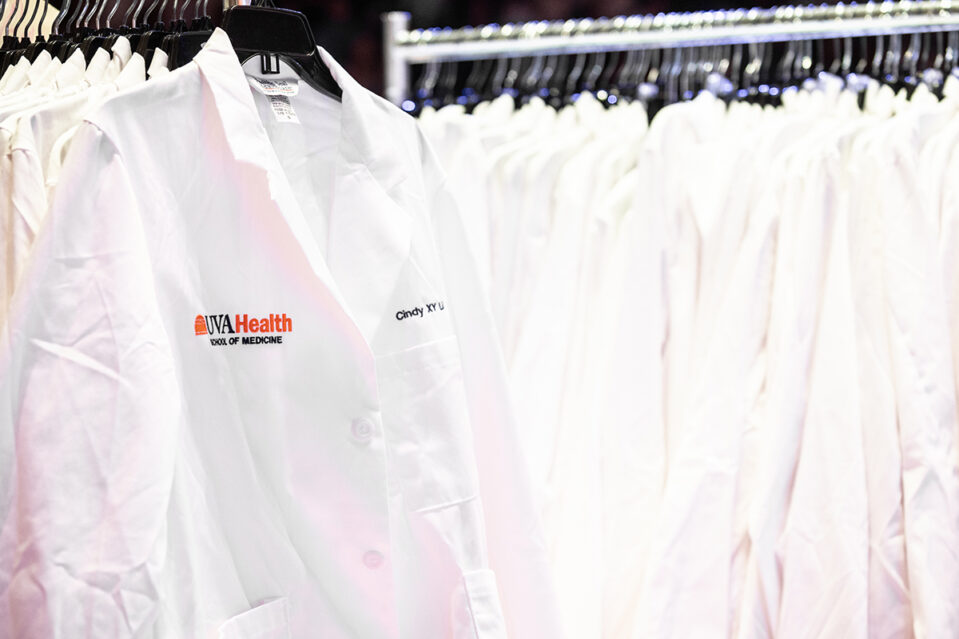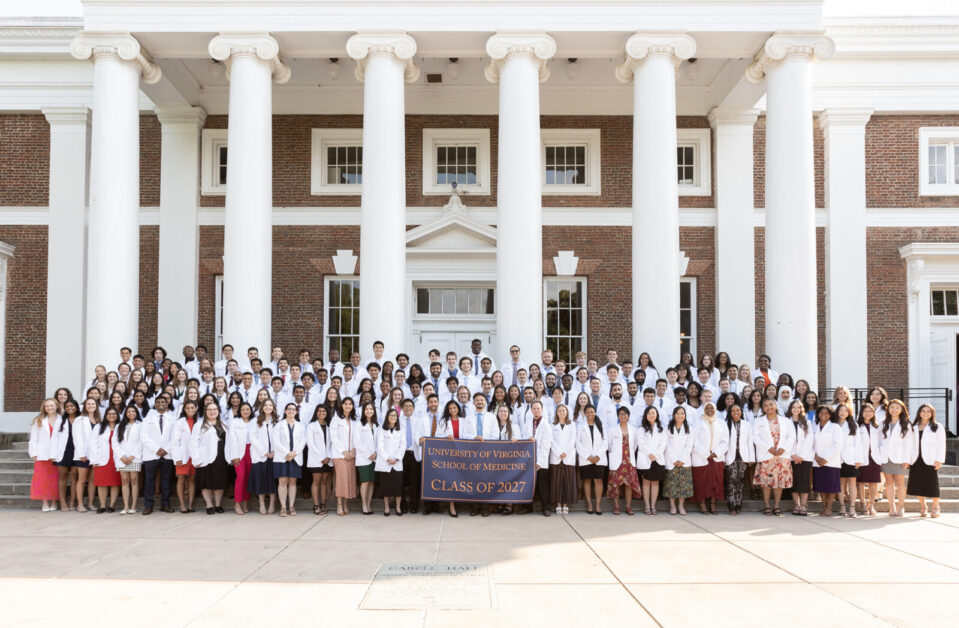
Students Honored for Service
Two medical students in the Class of 2025 have been honored with awards that recognize their community service efforts
How can alumni give back to the UVA School of Medicine and also support and encourage medical students involved in community service? For the Classes of 1954 and 1967, the answer was to create an annual award that rewards their efforts.
The Maxwell C. Feinman, MD, Class of 1954 Community Service Award was established in 2010 and is presented annually to a fourth-year UVA medical student who has performed outstanding community service in the Charlottesville area. In 2019, the Class of 1967 Joseph F. Smiddy, MD Altruism Award was established to recognize a fourth-year medical student who has demonstrated selfless service to the medically underserved.
Ashley Zhang, SMD’25, is the recipient of this year’s award from the Class of 1954. Her activities include serving as a leader of the Homeless Consult Service. Her work there involves managing an entirely student-run hospital service, staffing consults with student volunteers, financing the service, conducting research initiatives for quality improvement, and acting as a liaison between social work and general medicine teams. Additionally, she has volunteered with the Women’s Health Clinic at the Haven shelter and Charlottesville’s Social Services Advisory Board.
Zhang says that volunteering in the community has been a part of her life for many years, starting with service at a free clinic in Williamsburg as an undergraduate. “When I entered medical school, I knew that service and advocacy would be large parts of my career, as I saw community service as a critical extension of patient care,” she says. “I think being able to connect with people beyond the clinical setting has helped me better understand challenges patients face when they encounter a health problem and has solidified my desire to continue advocating for populations that might not otherwise have a voice in the healthcare system.”
The recipient of this year’s award from the Class of 1967 is Zuhayr Shaikh, SMD’25. His service activities include creating a unified Virginia free clinic volunteer opportunities board for telehealth and non-telehealth volunteers to expand access for underserved populations during the pandemic and beyond; securing a grant from the Clinton Foundation to expand the Free Clinic Volunteer Board into an annual conference series spotlighting underserved populations; leading a SIM project at University Medical Associates for virtual volunteer social-determinant of health screening of ambulatory care patients; and founding a student organization aimed at promoting health innovation to solve care access issues called Innovations in Access to Care.
Shaikh says that community service is a way for him to pay forward the generosity others have shown him and his family. “Community service has been a feel-good source of energy that has kept me on my path to taking on challenges in medical school and continuing to widen my perspectives,” he says. “Through community service efforts, I’ve had the chance to put classroom learnings into practice, make new friends, and feel a level of fulfillment of making a difference in helping people be happier and healthier, even if I am not yet a physician. I am also drawn to creative problem-solving and healthcare innovation efforts and find it particularly gratifying to strengthen these muscles to help ‘do more with less’ for patients that are often overlooked but really have significant need.”
Both awards are competitive. A committee of UVA School of Medicine faculty members review submitted nominations each year and select the winners, who each receive a significant financial award.
Zhang is grateful for the recognition and plans to continue doing work that helps others. “Receiving the Maxwell C. Feinman, MD, Class of 1954 Community Service Award is a profound honor. It is a reminder of the values that initially drew me to medicine and motivates me to keep striving towards positively impacting the community I serve,” she says.
Shaikh says that learning about the work of his award’s namesake has been inspiring.
“Dr. Smiddy is a pulmonologist who has longitudinally poured his heart into ‘inconvenient’ efforts to advance care for the underserved like obtaining a CDL to drive a Health Wagon tractor trailer complete with an X-ray room. I can only continue trying my best to live up to this level of impact and commitment,” he says.
Both Zhang and Shaikh are currently planning for residency interviews and looking ahead to the future.
“I am planning on pursuing obstetrics and gynecology, a field that serves a unique, diverse, and often vulnerable population. I believe OB/GYN will merge my clinical skills with my passion for service and offer me an opportunity to provide comprehensive and compassionate care to patients throughout various momentous stages of their lives,” Zhang says.
Shaikh’s dream is to become an anesthesiologist and find the best way to leverage the MBA he will also earn in 2025. In addition, he plans to help advance the student organization-turned 501(c)3 organization he founded with medical school peers called Innovations in Access to Care. “We’re aiming to turbocharge innovative service efforts by students that improve the health of inadequately served populations,” he says. “We are at an exciting point of growth and could really use any support, from mentorship to contacts to resources that would help us continue to build momentum.”


